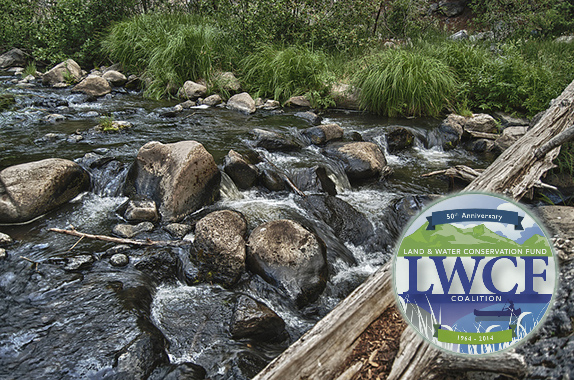
I have always loved the outdoors, the peace and tranquility from connecting with nature is a refuge from the hustle and bustle of daily life. But lately, the politics in Washington, D.C., has crept in and disturbed those quiet moments. You see, the program that has helped to protect habitat and secure access for sportsmen is expiring soon – and Congress hasn’t yet taken action to renew it – threatening my way of life.
For 50 years, the Land and Water Conservation Fund has protected local and national parks, working forests, historic landmarks, and wildlife refuges. It has been called one of the country's most important conservation programs, preserving America's cultural and natural heritage. As a sportsman, I personally care most about the role the Land and Water Conservation Fund has played in protecting wildlife habitat and ensuring access for sportsmen and women to hunt and fish. In many areas around the country, some of the best places for sportsmen to spend time with family and friends are protected and accessible because of the Land and Water Conservation Fund.
Montana has used matching Land and Water Conservation Fund grants to procure fishing access to several state rivers, including the Missouri, the Big Hole, and the Blackfoot. In southern Ohio, anglers are able to cast their fishing rods and nets in the Little Miami River thanks to access acquired through Land and Water Conservation Fund grants. New Mexico’s Eagle Nest Lake State Park and Washington’s Don Armeni Park are just two of the many recipients of Land and Water Conservation Fund grants that were used to build boat ramps accessing recreation waters.
Here in New Mexico too, public lands managed by the U.S. Forest Service, U.S. Fish and Wildlife Service and the Bureau of Land Management offer go-to locations for avid hunters and anglers, including many areas protected with funding from the Land and Water Conservation Fund.
It’s brought some $229 million into New Mexico during the past 40 years, helping protect such diverse areas as the Rio Grande Wild and Scenic River in Taos Gorge, the Petroglyph National Monument near Albuquerque and my personal favorite—the tiny urban park around the corner from my home, where I once played with my daughters and now play with my grandchildren.
Best yet: funding for the Land and Water Conservation Fund is provided through leasing royalties paid by oil and gas companies drilling offshore and not taxpayer dollars. Authorized by Congress to receive $900 million every year through 2015, the Land and Water Conservation Fund has instead been consistently raided for other congressional priorities. It has been fully funded by Congress only once or twice. Over time, more than $18 billion has been stolen from the Land and Water Conservation Fund. Or as Field & Stream put it, “They have been stealing from fish, wildlife, and sportsmen for 48 of the last 50 years.”
And now, the Land and Water Conservation Fund might expire with Congress showing little initiative yet to reauthorize it.
On September 3, the Land and Water Conservation Fund celebrated its 50th anniversary. Funding for America’s wildlife habitat and access for sportsmen and women is in jeopardy unless Congress acts. As Interior Secretary Sally Jewell said recently, “It showed great wisdom and foresight 50 years ago when Congress created the fund. I hope, 50 years from now, people will be able to thank this Congress for its wisdom and foresight for reauthorizing the Land and Water Conservation Fund."
(Photo by Todd Shoemake)



Responses to “Ensuring that Sportsmen Continue to Have Access to America’s Public Lands”